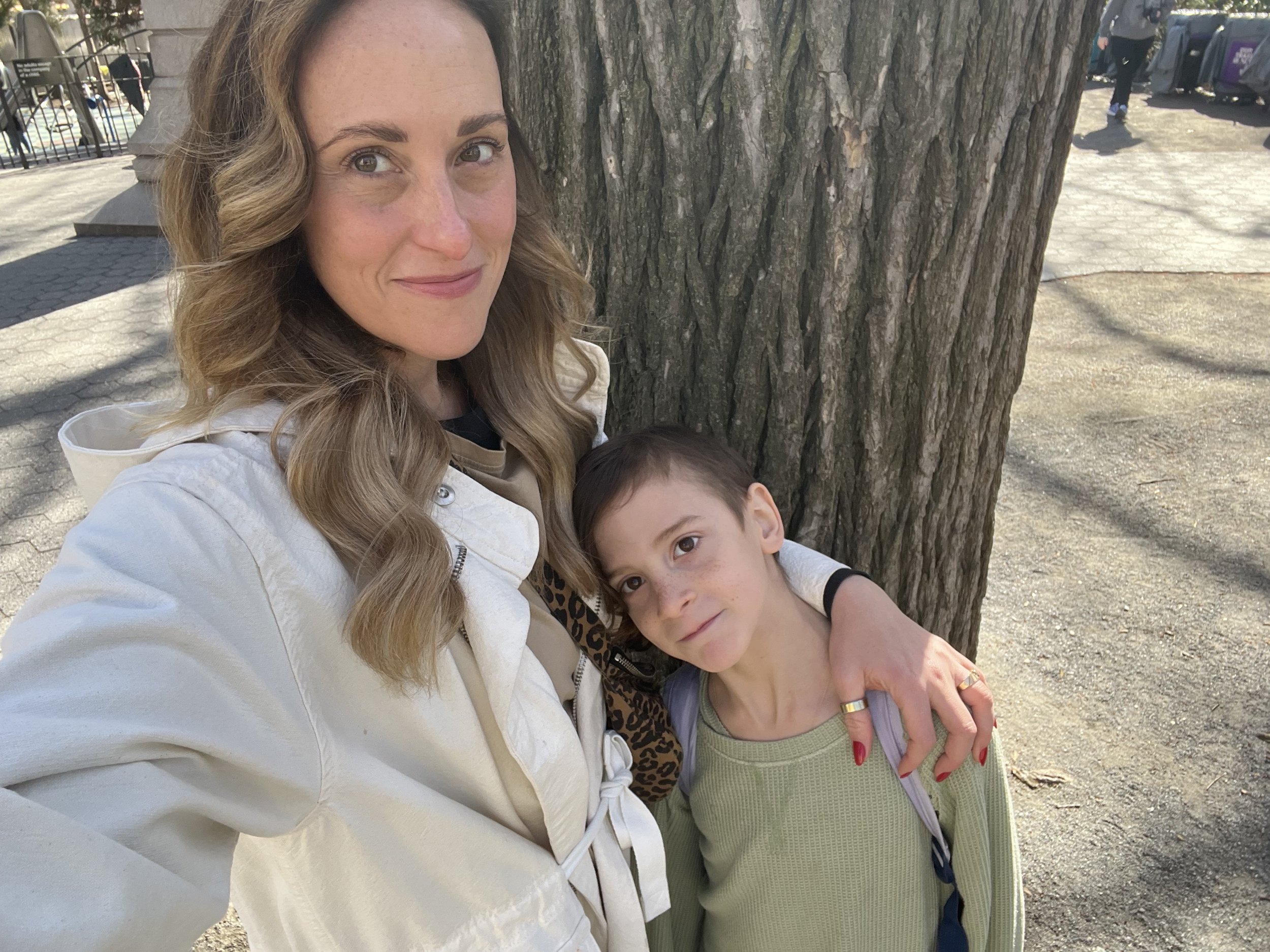Perimenopause Burnout: Why Midlife Isn’t Meant to Be Done Alone
February humbled me.
It started with my youngest — my four-year-old — coming down with a febrile virus. One of those middle-of-the-night fevers that turns your whole world soft and slow.
We co-slept. I rearranged my schedule. I did what every mother does when a little body needs comfort: I showed up, completely.
There’s a strange sweetness to those moments — the snuggles, the stillness. But even sweetness can leave you depleted.
Ten days later, I got sick too. Fever, chills, and body aches gave way to a deep, relentless cough. As soon as I started to come up for air, he went down again.
And just like that, we were spinning on a sickness merry-go-round I couldn’t seem to get off.
But the hardest part of all of it? Accepting that I needed to do nothing.
Midlife has trained us to keep going. We’ve wired ourselves to push through — to care, to cope, to keep up. And I tried. Until my body made it clear: the old system wasn’t cutting it anymore.
Three weeks in, I still didn’t feel like myself. I knew something had to shift. So I did what I so often encourage my patients to do: I asked for help.
I recruited a colleague who specializes in longevity and biohacking, and I started overhauling my stack — supplements, recovery practices, nervous system support. Not as a quick fix, but as an intentional upgrade to meet this season of life with more ease.
Because here’s the truth: perimenopause isn’t just about getting access to hormones. It’s about reimagining the way we support our bodies altogether.
How Estrogen Regulates Cortisol (and Why That Matters)
One of estrogen’s lesser-known roles is its ability to regulate the stress response. Estrogen interacts with the HPA axis — the communication system between your brain and adrenal glands that controls your production of cortisol (your primary stress hormone).
When estrogen levels are healthy, they buffer the stress response. They help prevent cortisol from spiking too high and keep your body from staying stuck in fight-or-flight mode.
But as estrogen begins to fluctuate and decline in perimenopause, that buffer disappears. Result? You become more sensitive to stress. You feel more emotionally reactive, anxious, and exhausted. Your recovery time lengthens. You live in a state of low-grade, chronic stress — even if nothing “major” is wrong.
This state is exhausting. But worse? It’s biologically inflammatory.
How Hormonal Imbalance Affects Your Immune System
Most women don’t realize how deeply estrogen and cortisol impact immunity. When cortisol becomes dysregulated — too high for too long, or too low after years of burnout — your immune system takes a hit. You might notice: Getting sick more often. Slower recovery time. Lingering fatigue after viruses. Increased inflammation or histamine responses. Reactivation of latent infections like Epstein-Barr. This isn’t aging. This is imbalance. And it’s completely addressable — with the right care.
What You’re Feeling Isn’t a Mystery — It’s a Signal
One of the most dangerous myths about midlife is that the way you’re feeling is “just how it is now.” You’re not broken. You’re not weak. And no — you’re not “just getting older.” Perimenopause is your body asking for better support. Not just a patch. A plan. A partnership. This is your chance to get stronger. Calmer. More aligned. To work with your changing hormones — not against them. To stop coping and start evolving.
So What Is the Right Support?
It starts with being seen. Not for five minutes in a rushed appointment. Not by a chatbot. But by someone who listens deeply, who sees your patterns and your potential. By someone who can hold space while also holding the roadmap.
That’s what we do at Aurelia. We guide women through the hormonal transition with a hormones-first™ approach, yes — but we also rebuild the system. We optimize. We tend. We get your energy back online and your body working for you again. This is not about chasing youth. It’s about reclaiming your capacity. Your health. Your peace. And your presence in your own life. Because you weren’t meant to do this alone. And you weren’t meant to settle for survival. You were meant to Do midlife better™.
Feeling like your old strategies just aren’t working anymore?
Our team at Aurelia specializes in supporting high-functioning, high-achieving women in perimenopause and menopause — with care that’s personalized, science-backed, and actually helpful.



